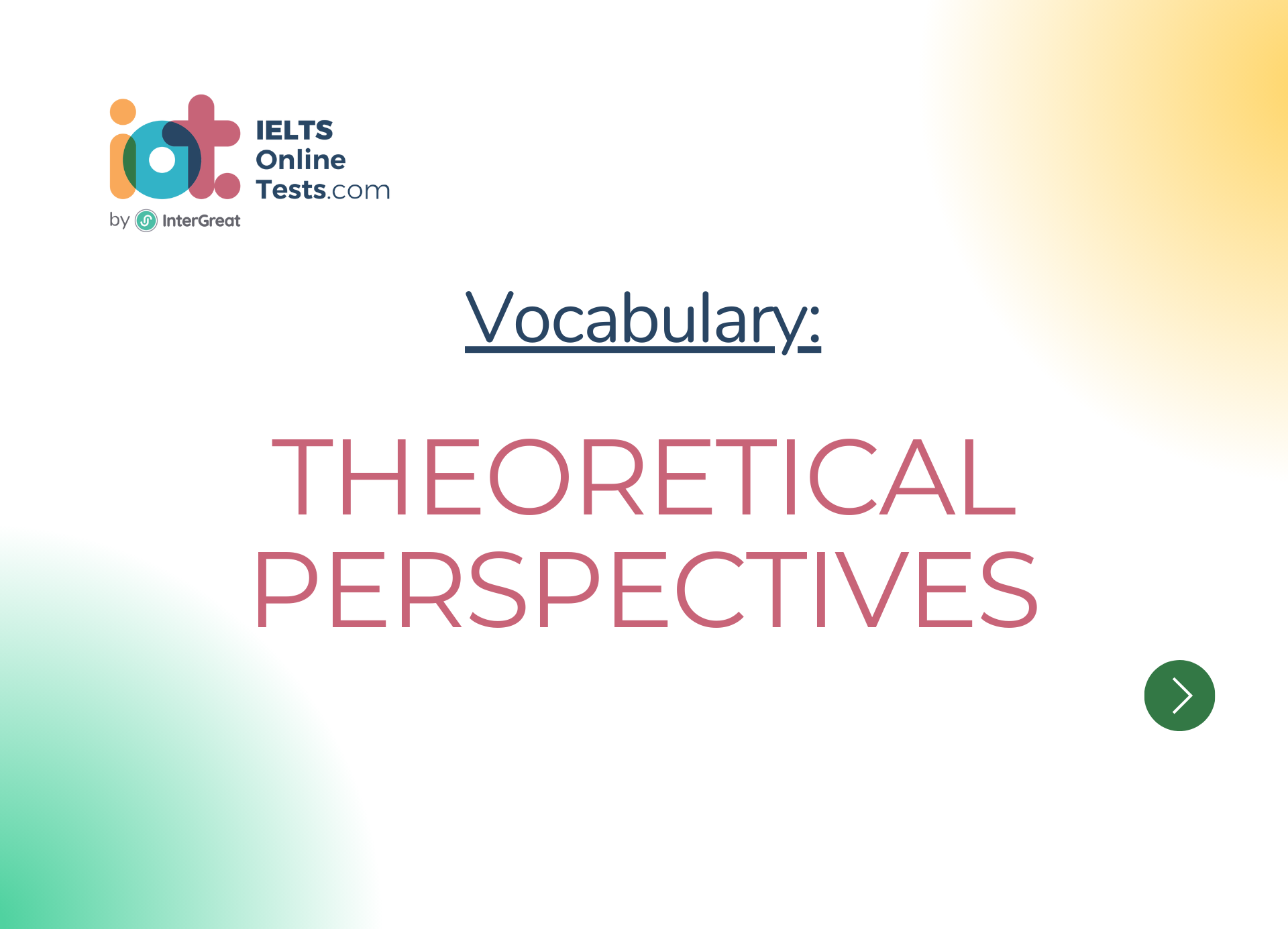
Theoretical perspectives
Here's a detailed list of vocabulary related to "Theoretical Perspectives" that can help you discuss various theoretical frameworks and viewpoints in English, suitable for the IELTS band score range of 6.5-8.0:
Functionalism:
Definition: A theoretical perspective that views society as a complex system with interconnected parts, each serving a specific function to maintain stability and social order.
Example: Functionalists emphasize the role of institutions in promoting societal cohesion.
Conflict Theory:
Definition: A perspective that highlights the competition and struggle for power and resources within society, leading to social inequality and change.
Example: Conflict theorists analyze the unequal distribution of wealth and its impact on different social groups.
Symbolic Interactionism:
Definition: A theoretical approach that focuses on how individuals interpret and give meaning to symbols and gestures in social interactions.
Example: Symbolic interactionists study how people communicate through language, gestures, and other symbols.
Social Constructionism:
Definition: The belief that societal concepts and realities are shaped by human interpretations and social interactions.
Example: Social constructionists argue that ideas like gender and race are not inherent but are constructed by society.
Feminist Theory:
Definition: A perspective that examines gender-based inequalities and advocates for gender equality in various social contexts.
Example: Feminist theorists analyze how patriarchy affects women's opportunities and roles.
Postmodernism:
Definition: A philosophical perspective that challenges the notion of absolute truth and emphasizes the diversity of human experiences and viewpoints.
Example: Postmodernists critique the grand narratives of history and question fixed identity categories.
Structuralism:
Definition: A theoretical approach that seeks to understand the underlying structures and patterns that shape human behavior and culture.
Example: Structuralists analyze the underlying structures of language and myths.
Poststructuralism:
Definition: An extension of structuralism that questions the stability and coherence of language and meaning.
Example: Poststructuralists emphasize the role of power in shaping language and social norms.
Rational Choice Theory:
Definition: A perspective that views individuals as rational decision-makers who weigh the costs and benefits of their actions.
Example: Rational choice theorists study how people make decisions in economic and social contexts.
Systems Theory:
Definition: A perspective that examines complex entities as interconnected systems with interdependent parts and interactions.
Example: Systems theory is applied in various disciplines, such as biology, ecology, and organizational studies.
Cultural Materialism:
Definition: A theoretical framework that examines how material conditions and resources influence cultural behaviors and practices.
Example: Cultural materialists study how economic factors impact cultural beliefs and traditions.
Ecological Systems Theory:
Definition: A perspective that explores the interactions between individuals and their social environments at multiple levels.
Example: Ecological systems theory considers how family, school, community, and society influence an individual's development.
Critical Theory:
Definition: A perspective that critiques social institutions and power structures to promote social justice and equality.
Example: Critical theorists analyze the role of media in perpetuating stereotypes and ideologies.
Phenomenology:
Definition: A philosophical approach that focuses on the first-hand experiences of individuals to understand human consciousness and perception.
Example: Phenomenologists study how individuals experience and interpret the world around them.
Functional Structuralism:
Definition: A combination of functionalism and structuralism, examining how social structures fulfill specific functions in society.
Example: Functional structuralists analyze how family structures contribute to societal stability.
By familiarizing yourself with these theoretical perspectives and related vocabulary, you can engage in thoughtful discussions about sociological and philosophical concepts, contributing to a higher band score in the IELTS exam. Good luck with your studies!




